This article was medically reviewed by Lacy Windham, MD. Lacy Windham, MD, is a Board-Certified Obstetrician & Gynecologist in Cleveland, Tennessee. Dr. Windham attended medical school at the University of Tennessee Health Science Center in Memphis. Her residency was completed at Eastern Virginia Medical School in Norfolk, Virginia. She was the recipient of multiple awards during her residency training, including Most Outstanding Resident in Maternal Fetal Medicine, Most Outstanding Resident in Oncology, Most Outstanding Resident Overall, and Special Award in Minimally Invasive Surgery.
There are 11 references cited in this article, which can be found at the bottom of the page.
wikiHow marks an article as reader-approved once it receives enough positive feedback. In this case, 100% of readers who voted found the article helpful, earning it our reader-approved status.
This article has been viewed 156,950 times.
Herpes is a virus that has two strains, HSV-1 and HSV-2. These manifest themselves either through genital sores (or HSV-2) or oral blisters (HSV-1 or herpes simplex). Although there is no cure for herpes, you can manage the virus. By actively taking medications, dealing with outbreaks, and communicating with others, you may be able to reduce and minimize recurrences of herpes.
Steps
Living with Genital Herpes
-
1Take prescription antiviral medications. Since there is no cure for genital herpes, treating it with antiviral medications can help heal outbreaks sooner and lessen the severity of recurrences. It may also minimize the chance of transmitting the virus to other people.[1]
- It’s important to get a diagnosis and start treatment as soon as you have symptoms of genital herpes, which may lessen the severity of the virus in the long term.
- Common medications for genital herpes are Acyclovir (Zovirax), Famciclovir (Famvir), and Valacyclovir (Valtrex).
- Your doctor may advise taking medication only if you have symptoms or an actual outbreak, or she may recommend daily use even if no signs of an outbreak are present.
-
2Communicate with your partner or partners. An important part of living with genital herpes is communicating with your partner or partners about the virus. It’s the kind and responsible thing to do and may help avoid problems later.
- Do not blame your partner for anything. Remember that herpes can remain dormant in your body for years so it can be difficult to tell who infected you.[2]
- Talk to your partner about having the disease and the best ways you can minimize the chances of infecting him or having further outbreaks.
Advertisement -
3Prevent transmission of genital herpes to your partner. Whether the disease is dormant or you are having an outbreak of lesions, you need to take steps to prevent your partner from contracting genital herpes. There are several way to minimize the risk of transmitting the disease to you or your partner.[3]
- Avoid or limit sexual contact to one person who is infection-free if you can.
- Abstain from sex if either you or your partner have an outbreak of genital herpes.
- Use latex condoms every time you have sex or make genital contact.
- If you’re pregnant and have genital herpes, make sure to let your doctor know so that you don’t transmit it to your unborn child.>
-
4Be aware of social stigmas. Even though sexual politics have progressed, there are often still social stigmas attached to genital herpes. These stigmas can cause you shame, stress, anxiety, or depression. Addressing the negative connotations and your own feelings associated with genital herpes can help you move forward and lead a normal life.
- Many people feel shame and embarrassment when they are first diagnosed with genital herpes and they may even wonder if anyone will want to have sex with them again. This is a completely normal initial reaction, but you should know that genital herpes is common and you don’t need to feel this way.[4]
- Seeing a counselor, doctor, or friend can help you deal with your feelings.
-
5Join a support group for genital herpes sufferers. Joining a support group of others who suffer from genital herpes can offer you unconditional support from others who understand what you’re experiencing. It can also help you effectively deal with the various aspects of the virus.[5]
-
6Watch for the symptoms of outbreaks and treat them promptly. If you see the symptoms of a genital herpes recurrence, treat them promptly. This may help minimize the length of the outbreak and may make it less severe.
- The symptoms of an outbreak may include: herpetic lesions, fever, body aches, swollen lymph nodes, and headache.[6]
- Call your doctor and get a prescription to help minimize and heal the recurrence.
-
7Break and clean the blisters. If you have external blisters during an outbreak, break and wash them immediately. This may help heal the outbreak and keep it from spreading.
- Break the blisters in the shower by using clean washcloth soaked in warm, soapy water. Make sure to wash the cloth in a hot soapy cycle in your washing machine before using it again.
- Clean the blisters with rubbing alcohol on the first and second days to kill any virus and sterilize the area. You can also use warm soapy water if the alcohol is too painful.
- Cover the area with gauze or a sterile pad to keep any blister fluid from spreading.
- Do not break internal lesions. Consult your doctor if you have an outbreak that is on the inside of your body.
-
8Lead a healthy lifestyle. Getting regular exercise regularly, eating a well-balanced diet, and being hygienic will keep you and your immune system strong and healthy. Making sure that your maintain your overall healthy may reduce the likelihood of recurrences.
- Some people report that alcohol, caffeine, rice, or even nuts can trigger their outbreaks. Keep a daily food journal to see if you can pinpoint any food triggers.
- Limit the amount of stress in your life, which can help minimize the recurrence of outbreaks.
-
9Make hygiene a priority. Sanitary conditions will promote cleanliness and reduce outbreaks. Showering, changing your clothing, and washing your hands can minimize recurrences or help heal ongoing outbreaks more quickly.
- Shower at least once daily, and consider taking two showers a day if you are showing symptoms of an outbreak.
- Wear clean, loose clothing and change your underwear daily.
- Wash your hands regularly to keep from getting sick, but also every time you come into contact with an outbreak.
Living with Oral Herpes
-
1Leave the cold sore or blisters alone. If an outbreak of oral herpes, which consists of cold sores or blisters around the mouth, isn’t too severe, you can leave it alone and not treat it. Your symptoms may go away within one to two weeks without treatment.[7]
- Use this option only if you feel well and are not likely to come into contact with anyone.
-
2Take prescription antiviral medications. There is no cure for oral herpes and treating it with antiviral medications can help heal outbreaks sooner and lessen the severity of recurrences. It may also minimize the chance of transmitting the virus to other people.[8]
- Common medications for oral herpes are Acyclovir (Zovirax), Famciclovir (Famvir), and Valacyclovir (Valtrex).
- Your doctor may also prescribe an antiviral skin cream like Penciclovir instead of a pill. These creams have basically the same effect as pills but are very expensive.[9]
- Your doctor may advise using the medication only if you have symptoms or an outbreak, or she may recommend daily use even if no signs of an outbreak are present.
-
3Communicate with your partner or partners. An important part of living with oral herpes is communicating with your partner or partners that you have the virus. You can then decide the best ways to manage the virus as a couple. Oral herpes are very common and you shouldn’t worry about feeling any stigma with them.
- Talk to your partner about the best ways you can minimize the chances of infecting him or having further outbreaks.[10]
-
4Prevent transmission of oral herpes. Whether your oral herpes are dormant or you are having an outbreak of cold sores, you need to take steps to prevent your partner from contracting the disease. There are several way to minimize the risk of transmitting oral herpes to you or your partner.[11]
- Avoid skin to skin contact when you have blisters or cold sores. The liquid secreted from the lesions spreads the disease.
- Don’t share items if you have blisters or cold sores. This includes, eating and drinking utensils, towels, lip balm, or bedding.
- Avoid oral sex if you have any cold sores or blisters.
- Wash your hands frequently, especially if you touch your mouth or come in contact with others.
-
5Be aware of possible social stigmas. Even though oral herpes are very common, some people may still experience social stigmas attached to them, which may cause feelings of shame, stress, anxiety, or depression. Addressing possible stigmas and your own feelings can help you deal with having oral herpes.[12]
- You may feel embarrassed when you are first diagnosed with oral herpes. This is a completely normal initial reaction.
- Seeing a counselor, doctor, or friend can help you deal with your feelings.
-
6Watch for the symptoms of outbreaks and treat them promptly. If you see the symptoms of an oral herpes outbreak, treat them promptly. This may help minimize the length of the outbreak and may make it less severe.[13]
-
7Gently wash the blisters. Wash any cold sores as soon as you notice them. This may help heal the outbreak and keep it from spreading.[16]
- Use a washcloth soaked in warm, soapy water and gently wash the blisters. Make sure to wash the cloth in a hot soapy cycle before using it again.
- You can put a topical cream such as tetracaine or lidocaine on blisters after you’ve washed them to relieve pain and itching.[17]
-
8Relieve the pain of cold sores. The blisters or cold sores associated with oral herpes are often very painful. There are several different ways to help minimize the pain and discomfort of cold sores.
- If you have any pain, you can take an over the counter pain reliever such as acetaminophen or ibuprofen to help minimize your discomfort.[18]
- Applying ice or warm washcloths can help ease the pain.[19]
- Gargling with cool water or salt water, or eating popsicles may ease the pain of blisters.[20]
- Don’t consume any hot beverages, spicy or salty foods, or any acidic foods like citrus fruits.[21]
-
9Prevent blisters and outbreaks. There are certain factors that may contribute to outbreaks of oral herpes. By taking proper precautions, you may help prevent or minimize recurrences.[22]
- Apply sunblock or lip balm with SPF and/ or zinc oxide to help prevent outbreaks of cold sores from sun exposure. This will also you’re your lips moisturized and less likely to have a flare up.
- Don’t share any type of eating or drinking utensils if you or someone else has oral herpes.
- Get regular exercise regularly, eating a well-balanced diet, and being relaxed will keep you and your immune system strong and healthy.
- Limit the amount of stress in your life, which can help minimize the recurrence of outbreaks.
- Wash your hands regularly to keep from getting sick, but also every time you come into contact with an outbreak.
Warnings
- Avoid wearing tight undergarments during outbreaks.⧼thumbs_response⧽
- Avoid sexual relations during outbreaks or you may run the risk of transmitting it to your partner.⧼thumbs_response⧽
References
- ↑ https://my.clevelandclinic.org/health/diseases/22855-herpes-simplex
- ↑ https://www.herpes.org.nz/herpes-patient-info/living-with-genital-herpes
- ↑ https://www.plannedparenthood.org/learn/stds-hiv-safer-sex/herpes/how-is-herpes-prevented
- ↑ https://www.herpes.org.nz/herpes-patient-info/living-with-genital-herpes
- ↑ https://www.ashasexualhealth.org/herpes-support-groups/
- ↑ http://www.cdc.gov/std/herpes/stdfact-herpes-detailed.htm
- ↑ http://www.nlm.nih.gov/medlineplus/ency/article/000606.htm
- ↑ https://my.clevelandclinic.org/health/diseases/22855-herpes-simplex
- ↑ https://www.drugs.com/condition/herpes-simplex.html
- ↑ https://www.herpes.org.nz/herpes-patient-info/living-with-genital-herpes
- ↑ https://my.clevelandclinic.org/health/diseases/22855-herpes-simplex#prevention
- ↑ https://www.npr.org/sections/health-shots/2016/01/22/463845334/a-common-secret-struggling-with-the-stigma-of-herpes
- ↑ http://www.nlm.nih.gov/medlineplus/ency/article/000606.htm
- ↑ http://www.nlm.nih.gov/medlineplus/ency/article/000606.htm
- ↑ http://www.nlm.nih.gov/medlineplus/ency/article/000606.htm
- ↑ http://www.nlm.nih.gov/medlineplus/ency/article/000606.htm
- ↑ https://my.clevelandclinic.org/health/diseases/22855-herpes-simplex#management-and-treatment
- ↑ http://www.nlm.nih.gov/medlineplus/ency/article/000606.htm
- ↑ http://www.nlm.nih.gov/medlineplus/ency/article/000606.htm
- ↑ http://www.nlm.nih.gov/medlineplus/ency/article/000606.htm
- ↑ http://www.nlm.nih.gov/medlineplus/ency/article/000606.htm
- ↑ https://my.clevelandclinic.org/health/diseases/22855-herpes-simplex#prevention
About This Article
To live with genital herpes, it's important to take prescription antiviral medications, which can help heal outbreaks sooner, lessen their severity, and minimize transmission. If you're sexually active, communicate with your partner about the virus and take measures to prevent spreading it, such as abstaining from sex during outbreaks and using latex condoms. To prevent outbreaks and keep your immune system strong, exercise regularly, eat a well-balanced diet, and minimize stress. For tips on handling an outbreak, read on!
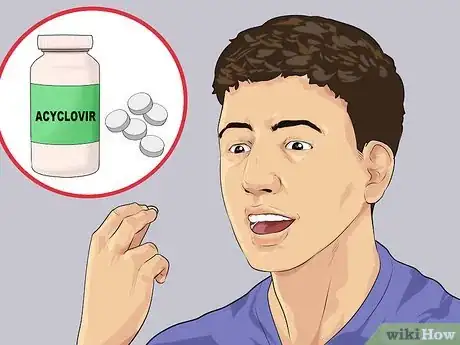

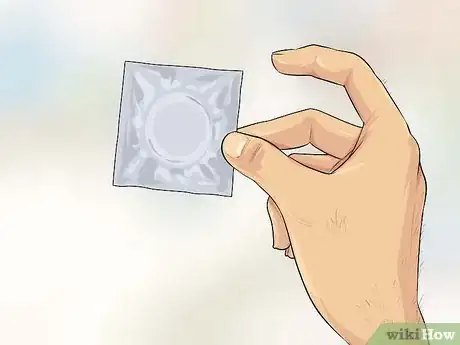


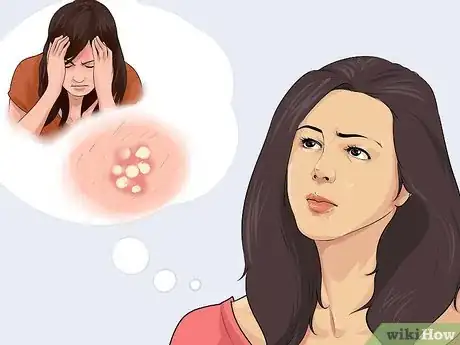
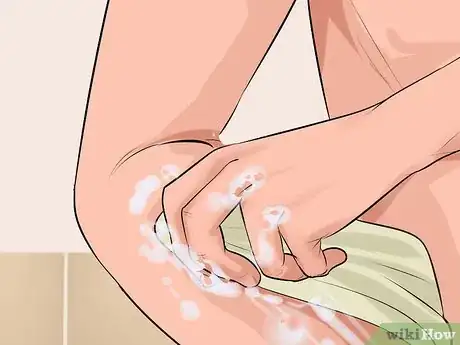


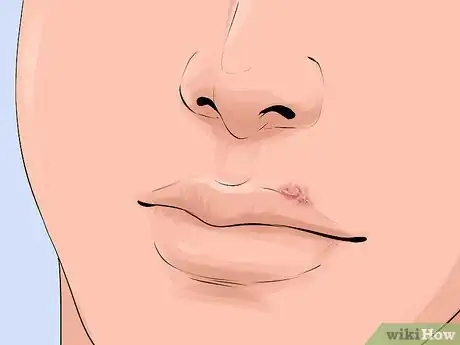
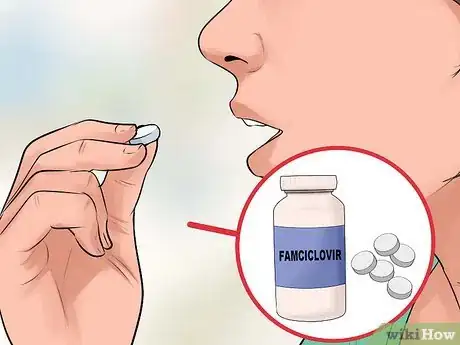

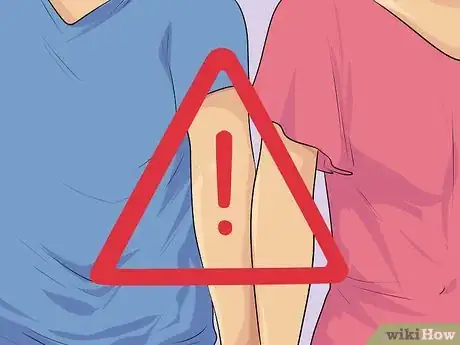

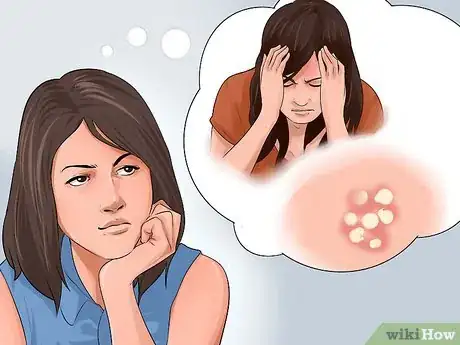
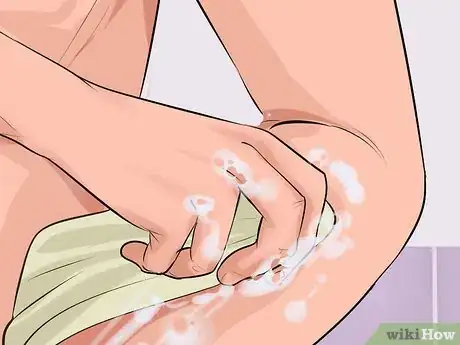
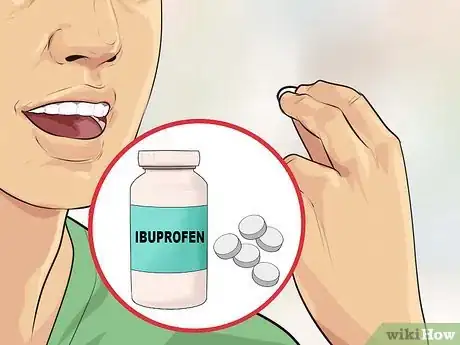
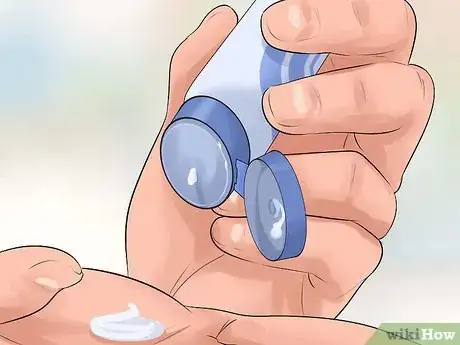
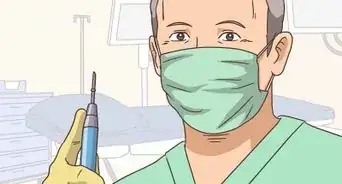
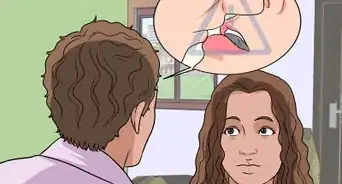
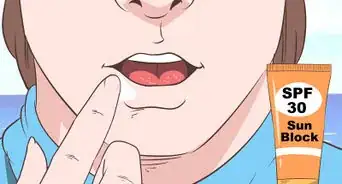
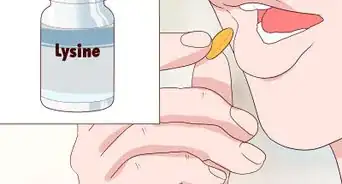


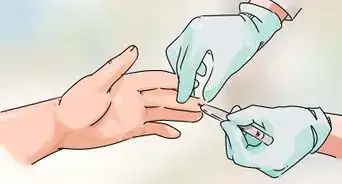
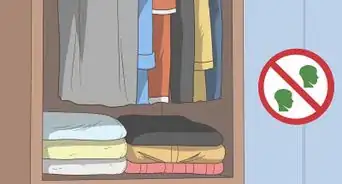




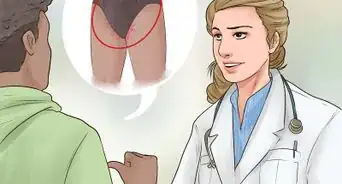
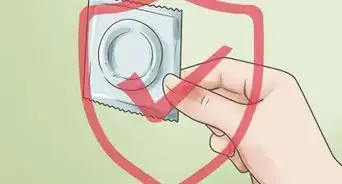









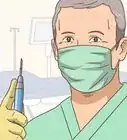

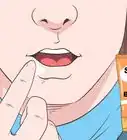
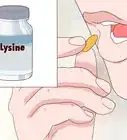



































Medical Disclaimer
The content of this article is not intended to be a substitute for professional medical advice, examination, diagnosis, or treatment. You should always contact your doctor or other qualified healthcare professional before starting, changing, or stopping any kind of health treatment.
Read More...